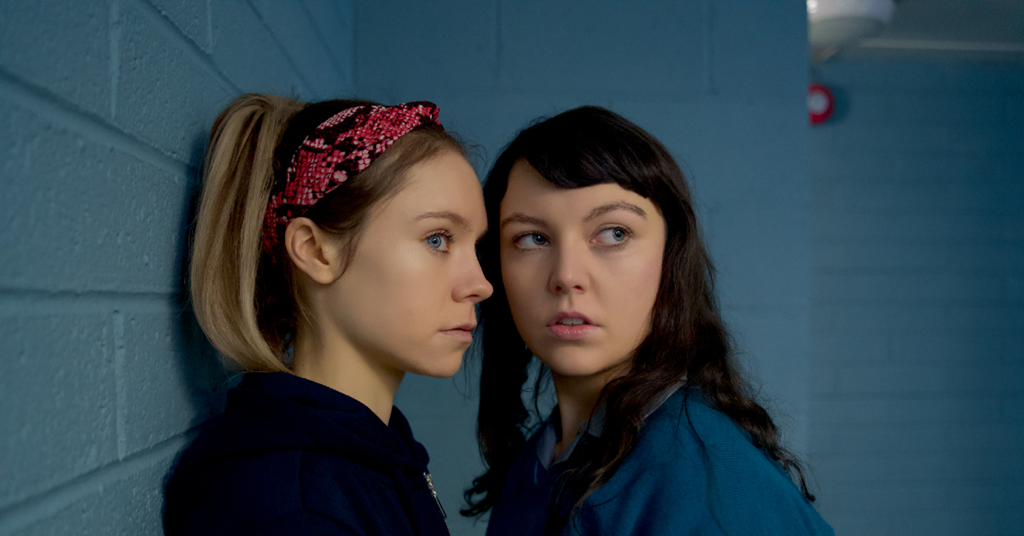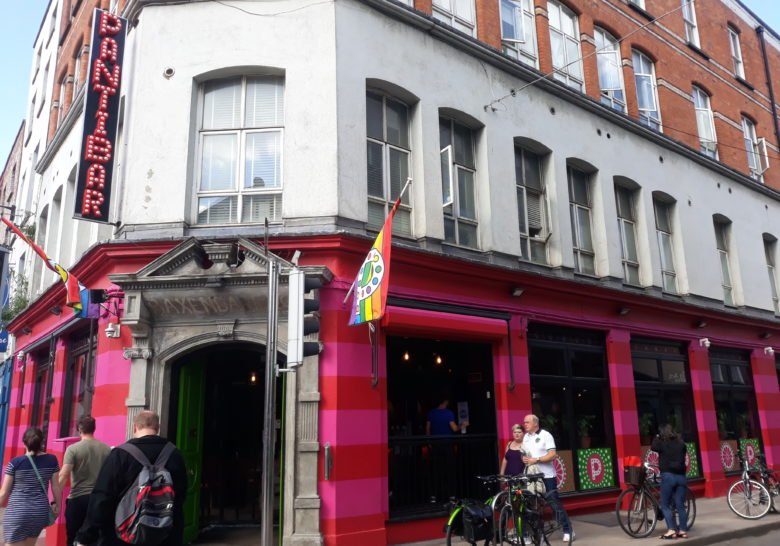- Film And TV
- 27 Apr 23

Originally released in 2021, Graham Cantwell directs the coming-of-age queer story following Lily (Clara Harte) as she navigates her sexuality at the end of her school days.
Coming-of-age dramedy Who We Love is the feature film adaptation of the IFTA nominated, award winning short film LILY. Tracing the story of Lily and Simon, best friends navigating the troubled waters of school life; the project also focuses on the challenges of coming out in modern Ireland.
The fourth film to be directed by Graham Cantwell, with a script penned by Cantwell and Katie McNeice, Who We Love beautifully explores Dublin's vibrant and sometimes dark LGBTQ+ scene under the sharp eye of reluctant mentor Oonagh (Amy-Joyce Hastings). When a misunderstanding with popular student Violet (Venetia Bowe) leads to a vicious attack, Lily (Clara Harte) is faced with the greatest challenge of her young life.
Nominated for six IFTA Awards in 2021, the flick also stars Dean Quinn, Paul Ronan, Danielle Galligan, and Norma Sheahan among others. Hot Press, having seen (and bawled our eyes out to) the film at the Light House cinema, have listed our top five reasons for giving Who We Love a watch.
 Venetia Bowe and Clara Harte in 'Who We Love' (2021).
Venetia Bowe and Clara Harte in 'Who We Love' (2021).Advertisement
Queer Strength On Screen
The LGBTQ+ community often refers to their "chosen family", the people closest to them who became their family during or after their coming out journey. Homophobia within families, schools and workplaces can lead to estrangement, bullying, violence or worse - meaning that safety has to be found with friends and fellow community members. Who We Love shines a moving light on the strength and resilience of LGBTQ+ people when times are hardest. Oonagh (Amy-Joyce Hastings), in particular, becomes a mentor for Lily as she tries to figure out her attraction to women. A badass older figure who's been through the wars, she goes to bat for her young followers - Simon included. Their bond echoes siblings who bicker but would take a bullet for each other.
Lily & Simon's Friendship
From the very beginning, Simon (Dean Quinn) refuses to care what his school peers think of him. Outlandish, brash and wickedly witty, his ability to dust himself off is in opposition to Lily's quiet, private nature. Their balancing act throughout may be tested, but it was always going to prove fortifying in the long run. No matter how many bullies outnumber them, Simon takes them all on with ease - leading Lily to LGBTQ+-oriented counselling services after a vicious attack and encouraging her to seek professional advice. Much to Oonagh's exasperation, you can never shake Simon off, but we wouldn't want it any other way.
Dublin's LGBTQ Hubs
From Penny Lane and Panti Bar to glimpses of Street 66, Capel Street and The George, the Irish capital's LGBTQ+ bars are in full swing in the film. The pink aesthetic of Panti Bar (home of Panti Bliss, no less) makes the perfect setting for Lily's first meeting with Oonagh, who addresses her low self-worth head on and builds up her confidence. Having someone to confide in, Dublin's queer spots are the perfect locations to show the fun, free side of the community. Queer joy can always be found on the dancefloor, after all.
Advertisement
 Panti Bar.
Panti Bar.The Script
Having secured Runner-up Best Narrative Feature at the OUTshine LGBTQ+ Film Festival, Graham Cantwell's adaptation of his own short film Lily continues his sensitive portrayal of the titular character undergoing one of the hardest moments of her life. The script reflects the sparky nature of Simon, the edge of Oonagh, the vulnerability of Lily, the cruelty of Violet (Venetia Bowe) and the banter and comebacks of a classroom environment with dexterous skill.
Speaking on adapting Lily into a feature length film, Graham said “The short film was very self-contained; it had a simple structure, with the setup, conflict and resolution taking place in a very compact 20 minutes. For the feature we got to expand the world of the narrative and explore some of the other characters in more depth. We went through many drafts to get it to the point where we were happy with it, then we had a reading with a full cast of actors that sent us right back to the drawing board in many ways.”
The Moral of the Story
A staunch anti-bullying message is at the core of the film, not just the deep-dive into living as a young LGBTQ+ person in contemporary Ireland. Though the Marriage Referendum of 2015 was a landmark result for the community, there is a misconception that homophobia has been drastically reduced or eradicated in Irish society ever since, when the rise in LGBTQ+ hate crimes disproves this. Bullying can be insidious, online, verbal, emotional - Who We Love highlights the heartbreaking ruthlessness and anger masking the deep internal fear (and occasional internalised homophobia) of sexuality.
“Who We Love is not just an important film about sexuality”, says co-writer Katie McNiece, "but also standing up to bullying in all forms and rallying around people who are still learning to believe in themselves, no matter what stage of life they're at. This is the film I wish I had seen when I was Lily's age and it really can't be overstated how much of a lifeline positive LGBTQ+ stories are for people in the process of coming out, remembering that experience, or those learning what it means on an emotional level for their own friends and family."
Advertisement
Who We Love is to be released in Irish cinemas tomorrow, April 28th










